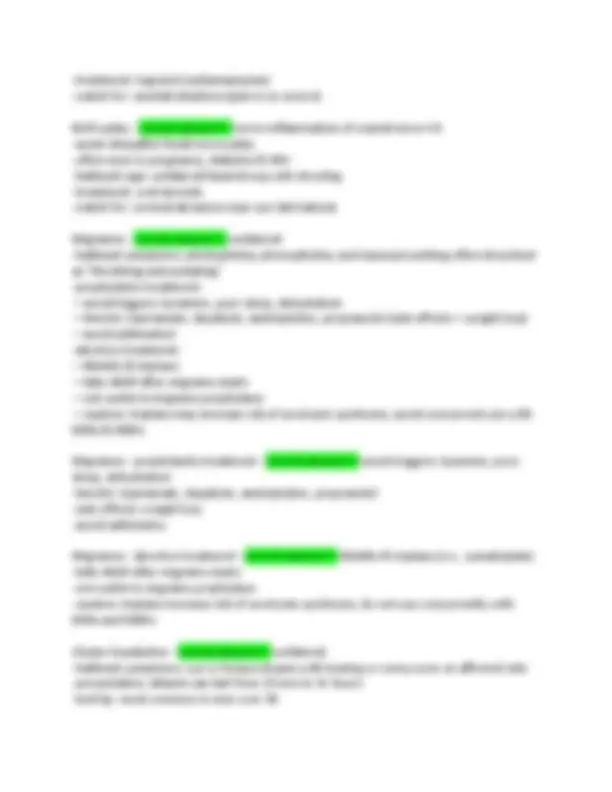






Study with the several resources on Docsity

Earn points by helping other students or get them with a premium plan


Prepare for your exams
Study with the several resources on Docsity

Earn points to download
Earn points by helping other students or get them with a premium plan
Community
Ask the community for help and clear up your study doubts
Discover the best universities in your country according to Docsity users
Free resources
Download our free guides on studying techniques, anxiety management strategies, and thesis advice from Docsity tutors
Alzheimer's disease - correct answer>>-amyloid hypothesis: idea that Alzheimer's disease is caused by the accumulation of beta-amyloid proteins in the frontal & temporal lobes -screening: mini mental status exam (MMSE) assessment tool -treatment goal: slow cognitive decline as there is no cure -mild-moderate dementia: cholinesterase inhibitors (donepezil & rivastigmine -severe dementia: NMDA antagonists (memantine) -must know facts: leading cause of dementia -presentation: gradual loss of cognitive function -remember your 4 "A" cardinal symptoms... 1. Agnosia: inability to process sensory information (think of your 5 senses) ex: incontinence, taste, smell, sounds 2. Apraxia: loss of voluntary motor skills (purposeful movements) 3. Aphasia: expressive (knows what they want to say but can't say it) vs receptive (cannot perceive what is being said to them)
Typology: Exams
1 / 8

This page cannot be seen from the preview
Don't miss anything!





Alzheimer's disease - correct answer>>-amyloid hypothesis: idea that Alzheimer's disease is caused by the accumulation of beta-amyloid proteins in the frontal & temporal lobes
Selective norepinephrine reuptake inhibitors (SNRIs) - correct answer>>-mechanism of action: blocks pre-synaptic serotonin & norepinephrine re-uptake